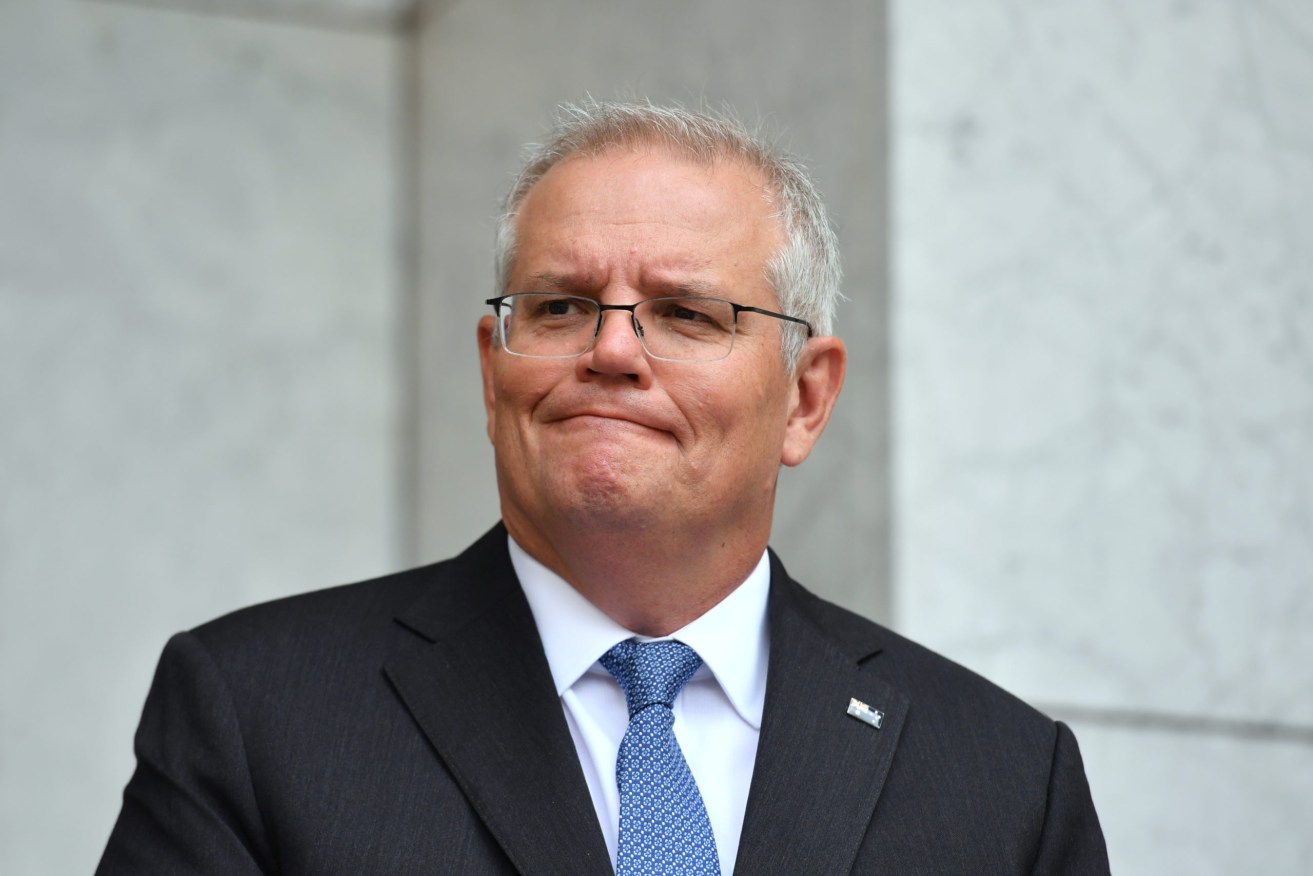PM ‘not listening’ to anti-vaxxer Christensen but not ousting him either
Prime Minister Scott Morrison has urged Australians not to listen to Queensland National Party MP George Christensen’s anti-vaccination views but insisted the controversial parliamentarian be allowed to “speak his mind”.

Prime Minister Scott Morrison says Labor would not support his proposal for an integrity commission. (AAP Image/Mick Tsikas)
Mr Morrison was again forced to respond to Mr Christensen’s outbursts over Covid-19 vaccinations after the MP released a podcast urging people not to vaccinated their children.
“Don’t listen to George Christensen. He’s not a doctor,” Morrison said.
“He can’t tell you what to do with vaccines. I listen to (chief medical officer) Professor Paul Kelly and their advice is children should be vaccinated.”
Mr Christensen, who is resigning from politics at the next election, has often made anti-vaccination remarks during the pandemic.
He previously in parliament likened COVID-19 restrictions to the regimes of dictators such as Adolf Hitler and Pol Pot.
His latest comments could see the Dawson MP removed from his position as chair of a parliamentary trade and investment committee, a role that earns him extra money on top of his backbencher salary.
However, Mr Morrison stopped short of calling for Mr Christensen to be expelled from the coalition party room.
“Australia is a free country, you can’t go locking people up for what they say as Australians,” he said.
“His views are not the government’s views … I can only encourage those to simply ignore him.”
The prime minister said he had spoken to Deputy Prime Minister and Nationals leader Barnaby Joyce about Christensen’s comments.
Alos on Wednesday, Morrison urged businesses not to enforce rules requiring employees to return daily negative rapid tests, saying it would further hit supplies.
While he acknowledged people’s frustrations during the summer period because of escalating Omicron cases and rapid test shortages, he said daily tests for employees were only needed in essential sectors like health, aged care and meat processing.
“There is no requirement for workers to be tested on a daily basis with rapid antigen tests, that is not the medical advice,” he said.
“Seeking to impose that would not only frustrate supplies, but it would also impose further burdens on our employers.”
As Covid-19 deaths across the country continue to rise amid the Omicron outbreak, Morrison said the variant must be respected but not feared.
The government is also considering whether to adopt a US-style approach and reduce the isolation period from seven days to five following a positive Covid-19 test result.
“All of these things are always under active consideration and have been for some time,” Mr Morrison said.
“The most recent information that we have is that post-five days you’ve still got 30 per cent (of cases) that are remaining infectious, and so that is a calibrated decision you’ve got to make.”
National cabinet is scheduled to meet on Thursday.
As shortages of rapid antigen tests persist across the country, 52 million kits will be flown from Asia and the US into Australia this month through an emergency freight supply scheme.
Health Minister Greg Hunt said rapid tests continued to be in short supply across the globe.
“These kits – destined for supermarkets, pharmacies and medical services across the country – will help Australians juggling the demands of jobs and families with requirements to isolate and undergo rapid testing,” he said.
Several jurisdictions on Wednesday also moved to shorten the time before people could get their third Covid-19 dose.
The interval between doses has been lowered to three months in NSW, Victoria, South Australia and the ACT.












